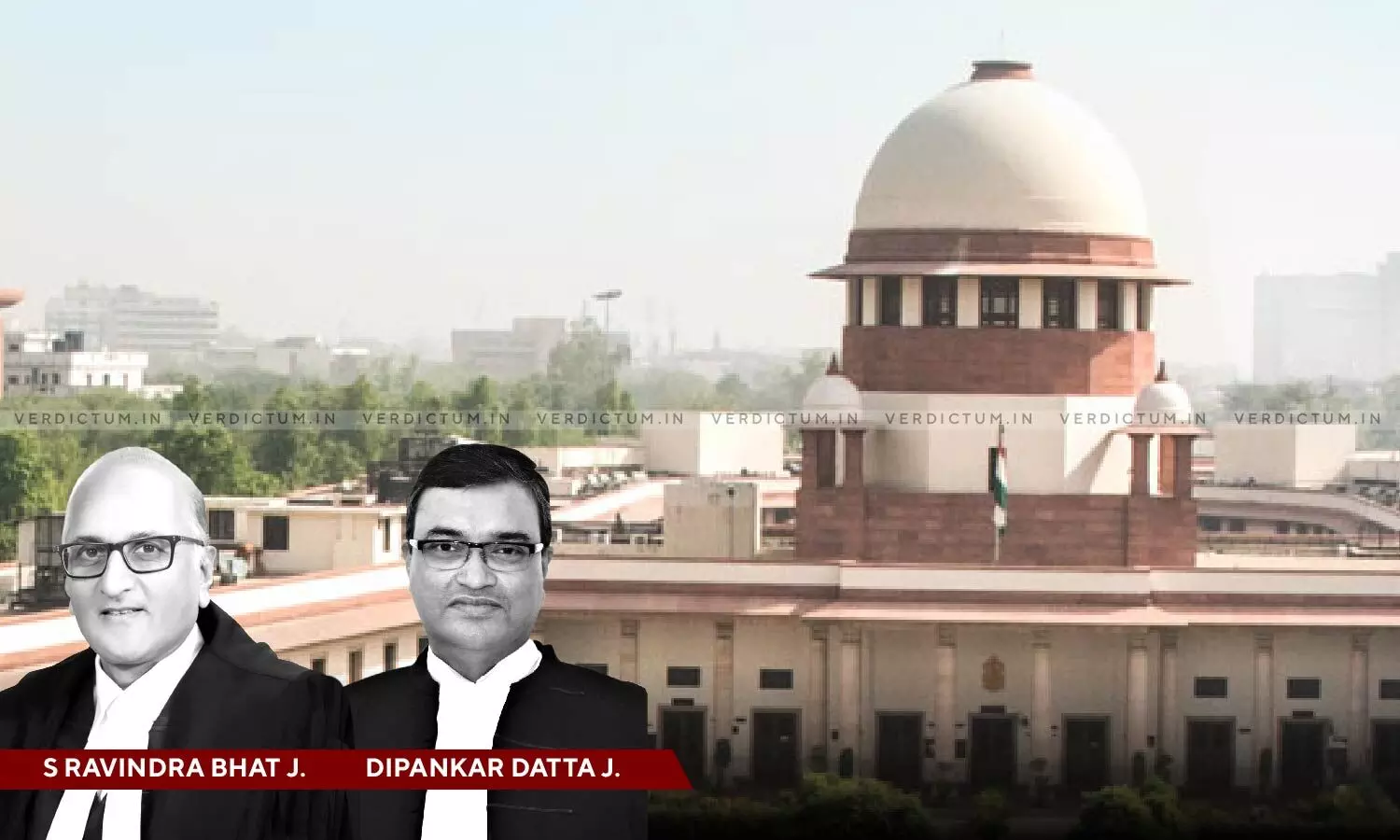
Supreme Court Dismisses Appeal Seeking Increased Allocation Of Raw Pet Coke For Industrial Use
 |
|The Supreme Court while hearing an appeal arising from the judgment of the Division Bench of Delhi High Court rejected the claims of the appellant seeking an increased allocation of Raw Pet Coke (RPC).
While delivering the verdict, the Court placed emphasis on a previous order wherein the quantity of RPC was fixed at 1.4 million MT in consultation with the Pollution Board.
The Bench headed by Justice S. Ravindra Bhat and Justice Dipankar Datta held that “The Division Bench noted, correctly that the annual total limit of import of 1.4 million Metric Tonnes was based on the total production capacity as on 09.10.2018 which had been fixed by this court on the basis of the capacity disclosed by all the calciners. It was also observed that an SPCB could indicate the permissible limit of production of calcined petroleum coke.”
Further, “the total figure of 1.4 million Metric Tonnes of RPC was based on the permissible capacity as on 09.10.2018. The Division Bench, therefore, concluded that if production capacity had increased, the proportionate share to be given was after clearance by this court.”
AOR Raj Bahadur Yadav appeared for the Appellant while Solicitor General Tushar Mehta along with Senior Advocate Sonia Mathur appeared for GOI, M/s Ahmadi Law Offices, AOR appeared for Respondent No.1
The appeal challenged the decision of a Division Bench of Delhi High, wherein the Court rejected a demand for increased allocation based on an increased manufacturing capacity. The Division Bench held that when this court passed the order, every calciner had given its capacity. This was based entirely on the total production capacity. The total limit of import of 1.4 MMTPA was based on the total production capacity as on 09.10.2018 which had been fixed by the court on the basis of the capacity disclosed by the calciners themselves.
The appellant, Sanvira Industries is involved in the manufacturing of Calcined Petroleum Coke (CPC). On 18th July 2018, the Central Ministry of Environment, Forest and Climate Change (“MoEF”), officers of the Environment Pollution (Prevention and Control) Authority for NCR and the Ministry of Petroleum and Natural Gas (“MPNG”) decided that import of pet-coke be ought to be restricted only to industries using it as a feedstock or as part of their manufacturing process and not as fuel.
On October 9, 2018, an order was passed directing that RPC import cannot exceed 1.4 MMTPA and that it could be used as feedstock for producing CPC. The figure of 1.4 MMTPA was based on the production capacity of calciners given by each one of them.
On March 22, 2019, the Appellant had requested for an increased allocation, based on its claim of enhanced capacity to the extent of 1,30,000 MTPA. This application for enhancement was rejected which also rejected a similar application for increased capacity by the contesting respondent, Rain CII.
On May 4, 2020, the Andhra Pradesh State Pollution Control Board (APSPCB) issued a letter stating that as per its record, based on inspection of Sanvira’s unit, the latter’s capacity for manufacture of calcinated petroleum coke was 3,30,000 MT per annum and the power generation capacity was 16 MW.
Upon examining the facts and submissions, the Bench held that “The Division Bench noted, correctly that the annual total limit of import of 1.4 Million Metric Tonnes was based on the total production capacity as on 09.10.2018 which had been fixed by this court on the basis of the capacity disclosed by all the calciners. The certificate dated 04.05.2020 issued by the APPCB merely certified that the installed capacity of Sanvira, as on 09.10.2018, for manufacturing calcined petroleum coke, was 3,30,000 Metric Tonnes per annum in terms of the CTO. In these circumstances, the clarification of APPCB, that as on a particular date, the production capacity was 3,30,000 MTPA was of no consequence, because it was the CTO that was considered all along, in all previous meetings. Therefore, the findings and conclusions of the Division Bench cannot be faulted.”
Accordingly, the appeal was dismissed with no costs.
Cause Title: M/S. Sanvira Industries v. Rain CII Carbon (Vizag) Ltd. & Ors.